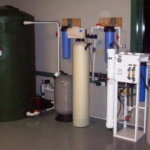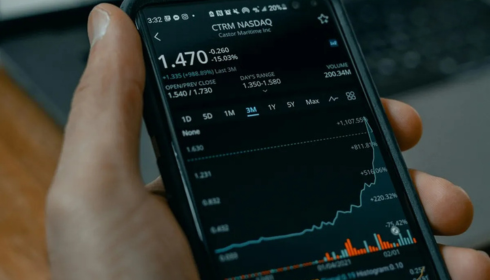A shelf prospectus is a pre-approved document that allows companies like HDFC SKY to quickly offer securities to the public without the need for repeated regulatory approvals. HDFC SKY by HDFC Securities offers a comprehensive investment platform with diverse trading options and competitive pricing, making it a promising choice for investors.
Definition of a Shelf Prospectus
A shelf prospectus refers to a type of prospectus that allows companies to register securities with the Securities and Exchange Board of India (SEBI) and offer them to the public over a period of time. The shelf prospectus enables companies like HDFC Securities to have the flexibility to issue and sell securities to investors without the need to file a separate prospectus each time they want to make an offering. With HDFC SKY, the shelf prospectus serves as a regulatory document that outlines the terms and conditions of the securities being offered, providing potential investors with essential information such as the company’s financials, risks associated with the investment, and details about the securities being issued. This prospectus gives investors the necessary transparency and disclosure to make informed investment decisions within the HDFC SKY platform.
Shelf prospectus not only simplifies the regulatory process for companies like HDFC Securities but also offers strategic advantages in their capital-raising endeavors. By maintaining a shelf registration, companies can capitalize on market conditions swiftly, reducing time-to-market for their securities offerings. This agility allows them to respond to favorable market trends or shifts in investor appetite without the delay of filing a new prospectus each time. As a result, both the issuer and the investors benefit from a streamlined process, with access to current and pertinent investment opportunities. Moreover, the comprehensive disclosures provided ensure a high level of investor confidence and engagement.
HDFC SKY, as an all-in-one investment platform, leverages the shelf prospectus to offer a wide array of investment opportunities to its users. By utilizing the shelf prospectus, HDFC Securities can efficiently introduce new investment products like stocks, mutual funds, ETFs, IPOs, F&O, commodities, and currency trading to its platform without the need for extensive paperwork for each offering. The shelf prospectus streamlines the process of bringing new investment options to market, enabling HDFC SKY to provide its customers with diverse investment choices in a convenient and cost-effective manner. Overall, the shelf prospectus plays a crucial role in enabling HDFC SKY to offer a comprehensive range of investment products and services to cater to the diverse needs of investors within the platform.
Purpose and Benefits of a Shelf Prospectus
A shelf prospectus serves as a valuable tool for companies like HDFC SKY to streamline the process of raising capital through the issuance of securities. By having a shelf prospectus in place, HDFC Securities can have a readily available document that outlines the terms and conditions of the securities they intend to offer. This allows for a more efficient and cost-effective approach to accessing the capital markets when the need arises, as they can quickly access the market without the need for lengthy and repetitive regulatory approvals. Additionally, a shelf prospectus provides transparency to investors by providing them with detailed information about the company’s financial health, risk factors, and future prospects, enabling them to make informed investment decisions.
The benefits of having a shelf prospectus for HDFC SKY are manifold. Firstly, it provides flexibility and agility in responding to market conditions and opportunities, as they can swiftly tap into the capital markets when favorable conditions arise. This can be especially advantageous in a dynamic and rapidly changing investment landscape. Secondly, having a shelf prospectus can enhance the company’s credibility and reputation among investors, as it demonstrates a proactive and transparent approach to fundraising. This can help attract a wider pool of potential investors who value transparency and regulatory compliance. Overall, a shelf prospectus offers HDFC SKY a strategic advantage in accessing capital markets efficiently and effectively, while also building trust and confidence with investors.
Key Features of a Shelf Prospectus
A shelf prospectus is a type of prospectus that allows a company to offer securities on an ongoing basis without having to file a separate prospectus for each transaction. One key feature of a shelf prospectus is its flexibility, as it allows the issuer to quickly access the capital markets when the need arises. This can be particularly beneficial for companies like HDFC Securities, offering platforms like HDFC SKY, as they may need to raise funds for various purposes, such as expansion or acquisitions, at short notice. By having a shelf prospectus in place, HDFC Securities can streamline the process of issuing securities and take advantage of market opportunities as they arise.
Mainboard IPO offerings can also benefit significantly from the streamlined processes enabled by a shelf prospectus. This strategic approach not only reduces the administrative burden associated with multiple filings but also enhances timing flexibility, allowing companies to capitalize on favorable market conditions. In the competitive world of financial markets, agility and preparedness can be decisive. By minimizing procedural delays, firms can maintain a proactive stance, ensuring they are well-equipped to fulfill strategic financial goals while delivering value to shareholders effectively.
Another key feature of a shelf prospectus is the ability to provide investors with detailed information about the securities being offered. This transparency is essential for investors to make informed decisions about whether to invest in HDFC SKY or any other offerings from HDFC Securities. By disclosing important information such as the terms of the securities, the risks involved, and the financial health of the company, HDFC Securities can build trust with potential investors and attract a wider range of investors to their platform. Ultimately, the key features of a shelf prospectus help HDFC Securities raise capital efficiently and effectively, while also ensuring that investors have the information they need to make sound investment decisions.
Requirements for Filing a Shelf Prospectus
When filing a shelf prospectus for a financial product like HDFC SKY, certain requirements need to be met. Firstly, the prospectus must contain all relevant information about the offering, including details about HDFC Securities, the investment platform, and the various services it provides. This should include a comprehensive overview of the features and benefits of HDFC SKY, such as the free Demat account opening, zero AMC for the first year, and the flat ₹20 brokerage per trade. Additionally, the prospectus should outline the scope of trading options available on the platform, which includes stocks, mutual funds, ETFs, IPOs, F&O, commodities, and currency. Clear and transparent information about the margin trading facilities at 1% p.m., expert research services, and advanced charting tools must also be included in the prospectus to provide potential investors with a complete picture of what HDFC SKY offers.
Furthermore, the shelf prospectus must adhere to regulatory requirements and guidelines set forth by the relevant authorities. This includes ensuring that all the information provided is accurate, up-to-date, and in compliance with securities laws and regulations. The prospectus should also clearly outline the risks associated with investing in HDFC SKY and provide information on how investors can access additional resources or seek further clarification. It is essential for the prospectus to be drafted in a clear and concise manner, making it easily understandable for both seasoned investors and those new to the investment landscape. By meeting these requirements for filing a shelf prospectus, HDFC Securities can effectively communicate the value proposition of HDFC SKY to potential investors and help them make informed decisions about investing through their platform.
Differences Between a Shelf Prospectus and a Regular Prospectus
A shelf prospectus is a type of prospectus that allows a company to offer securities to the public on an ongoing basis over a period of time, typically up to two years. This type of prospectus is pre-registered with the regulatory authorities, such as the Securities and Exchange Board of India (SEBI), and enables the company to issue securities quickly when market conditions are favorable. It provides flexibility to the issuer as they can tap into the capital markets efficiently without having to go through the lengthy process of preparing a new prospectus each time they wish to issue securities. In contrast, a regular prospectus is prepared for a specific offering of securities and is valid for that particular issuance only. It provides detailed information about the company, its financials, the securities being offered, and the terms of the offer.
On the other hand, a regular prospectus is prepared for a specific offering of securities and is valid for that particular issuance only. It provides detailed information about the company, its financials, the securities being offered, and the terms of the offer. This type of prospectus is typically used for initial public offerings (IPOs) or follow-on public offerings. A regular prospectus must be filed with the regulatory authorities before the securities can be offered to the public. It is more time-consuming and requires extensive disclosure of information compared to a shelf prospectus. In the case of HDFC SKY, a regular prospectus would be necessary if the platform decides to launch an IPO or offer a specific set of securities to the public for the first time, detailing all the features, fees, and investment options available to potential investors.
How Shelf Prospectuses Benefit Investors
Shelf prospectuses play a crucial role in benefiting investors by providing them with detailed and accurate information about the investment products being offered. In the case of HDFC SKY, investors can make informed decisions by accessing the shelf prospectus that outlines the terms, risks, and potential returns associated with various investment options available on the platform. By having access to this information, investors can assess the suitability of these products based on their investment goals, risk tolerance, and financial situation. This transparency helps investors to mitigate risks and make well-informed investment choices that align with their individual preferences and needs.
Moreover, shelf prospectuses contribute to enhancing investor protection by ensuring that they have access to all necessary disclosures and information required to make sound investment decisions. For instance, investors using the HDFC SKY platform can refer to the shelf prospectus to understand the fee structure, trading terms, and other important details related to their investments. This level of transparency fosters trust between investors and the platform, as it demonstrates a commitment to providing clear and accurate information to empower investors in their decision-making process. Ultimately, shelf prospectuses serve as valuable tools that enable investors to navigate the complex investment landscape with confidence and clarity.
Regulatory Framework for Shelf Prospectuses
The regulatory framework for shelf prospectuses plays a crucial role in ensuring transparency and investor protection in the securities market. In the case of HDFC SKY, which offers a wide range of investment opportunities through its platform, adherence to regulatory requirements is essential. A shelf prospectus allows a company to issue securities without the need for seeking fresh approvals for each offering, providing flexibility and cost-efficiency. However, strict guidelines are in place to govern the content and disclosure requirements of shelf prospectuses to ensure that investors have access to accurate and timely information. Regulatory bodies such as SEBI closely monitor the compliance of companies like HDFC Securities to safeguard the interests of investors and maintain the integrity of the securities market.
Subex Share Price fluctuations can significantly impact investor decisions, underscoring the importance of a robust regulatory framework for shelf prospectuses. These frameworks ensure that critical information relevant to price movements and market trends is disclosed to investors, allowing them to make informed decisions. Companies like HDFC SKY must meticulously adhere to these regulations to maintain investor trust and market stability. This vigilance in compliance not only safeguards the market’s integrity but also enhances the company’s reputation as a reliable investment choice. Investors have a vested interest in understanding how share prices are influenced by clear, comprehensive disclosure standards.
For HDFC SKY’s offerings, the regulatory framework for shelf prospectuses serves as a mechanism to promote fair practices and prevent misleading information that could potentially harm investors. By following the prescribed guidelines, HDFC Securities can enhance transparency and build trust among investors, ultimately contributing to the overall credibility of their investment platform. The detailed disclosure requirements mandated by the regulatory framework enable investors to make informed decisions about participating in various investment opportunities available through HDFC SKY. This ensures that investors have access to all relevant information regarding the risks, rewards, and terms associated with the securities being offered, thereby empowering them to assess their investment choices prudently.
Examples of Companies Using Shelf Prospectuses
HDFC Securities’ HDFC SKY platform is a prime example of a company utilizing shelf prospectuses to communicate its investment offerings to potential investors. By outlining the details of their services such as free Demat account opening, zero AMC for the first year, and flat ₹20 brokerage per trade, HDFC Securities can present a comprehensive overview of their products in a concise and accessible manner. Through the use of a shelf prospectus, investors can easily understand the range of investment options available on the platform, including trading in stocks, mutual funds, ETFs, IPOs, F&O, commodities, and currency. This transparency helps build trust with investors by providing clear information on the services offered and associated costs.
Moreover, the shelf prospectus for HDFC SKY also highlights the platform’s unique features, such as margin trading at 1% p.m., expert research, and advanced charting tools. These additional benefits are crucial selling points for the platform and are effectively communicated through the prospectus. By leveraging a shelf prospectus, HDFC Securities can efficiently showcase the advantages of using their investment platform, making it easier for potential investors to evaluate the benefits of choosing HDFC SKY for their investment needs. This proactive approach to disclosure and transparency through a shelf prospectus can attract more investors seeking a comprehensive and user-friendly investment platform.
Challenges and Risks Associated with Shelf Prospectuses
Shelf prospectuses present several challenges and risks for investors and companies alike. One significant challenge is the potential for information asymmetry, as shelf prospectuses allow companies to offer securities to the public without providing all the necessary details at the time of the initial offering. This can make it difficult for investors to fully evaluate the risks associated with the investment, leading to potential misunderstandings and misinterpretations. Furthermore, shelf prospectuses may lack the level of scrutiny and due diligence that is typically associated with traditional prospectuses, increasing the risk of inaccurate or incomplete information being presented to investors.
Another risk associated with shelf prospectuses is the potential for dilution of shareholder value. Since shelf prospectuses allow companies to issue additional securities over time, existing shareholders may face dilution of their ownership stake if new shares are issued at a lower price than the current market value. This can negatively impact the value of existing shares and erode shareholder returns. Additionally, the flexibility provided by shelf prospectuses may lead to opportunistic behavior by companies, such as issuing securities when market conditions are favorable, potentially diluting shareholder value in the process. Investors need to carefully assess the risks and implications of investing in securities offered through shelf prospectuses to make informed investment decisions.
Investment App users should be particularly vigilant when evaluating shelf prospectuses. The capacity for companies to release new shares can lead to strategic issuance that might not align with current shareholder interests. This can result in unanticipated dilution, where the intrinsic value of existing shares may diminish, affecting overall portfolio performance. Investors must scrutinize the timing and pricing of such offerings closely. By leveraging sophisticated tools available within the Investment App, investors can track market trends and company activities, enabling more informed decisions regarding their investment strategies.
Shelf Prospectus vs. Traditional IPO: A Comparison
A shelf prospectus allows a company like HDFC SKY to register securities with regulatory authorities for future offerings, providing flexibility in the timing of issuing securities. This is in contrast to a traditional IPO, where the company must go through the entire process of preparing and filing a new prospectus each time it wants to issue new securities. With a shelf prospectus, HDFC SKY can access the capital markets quickly when favorable conditions arise, enabling it to capitalize on market opportunities promptly. This method can save time and costs associated with repetitive filings and approvals, making it a more efficient way to raise capital for the platform’s expansion and growth initiatives.
On the other hand, a traditional IPO involves a more structured and time-consuming process of offering securities to the public for the first time. In this approach, HDFC SKY would need to engage in roadshows, marketing campaigns, and investor presentations to generate interest and demand for its shares. While a traditional IPO can attract significant attention and potentially lead to a higher valuation for the company, it also comes with higher regulatory scrutiny and compliance requirements. By choosing between a shelf prospectus and a traditional IPO, HDFC SKY can evaluate the trade-offs between speed to market, cost efficiency, and investor engagement to determine the most suitable method for raising capital and expanding its investment platform.
















